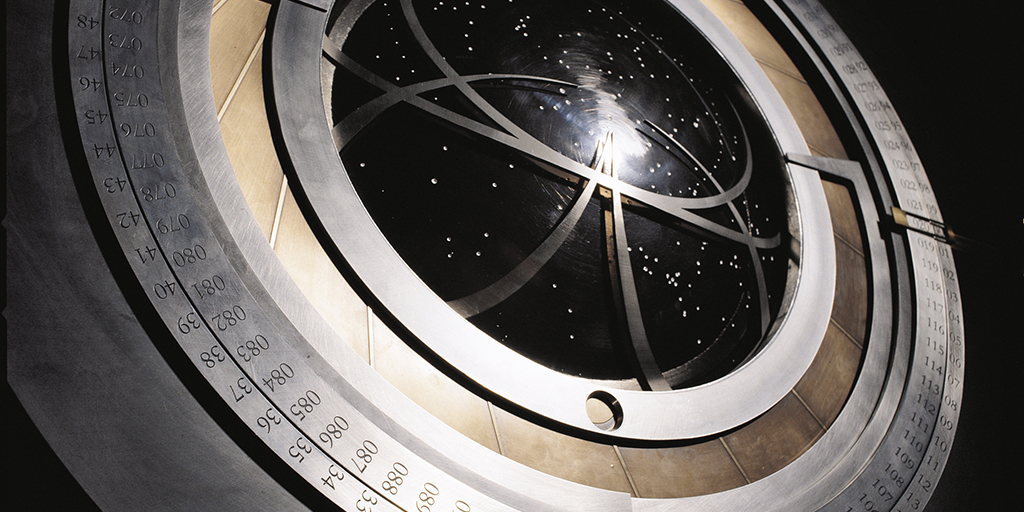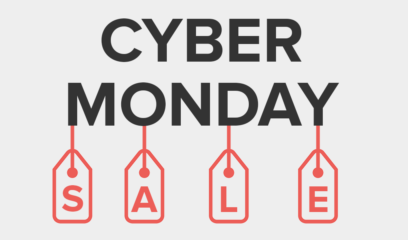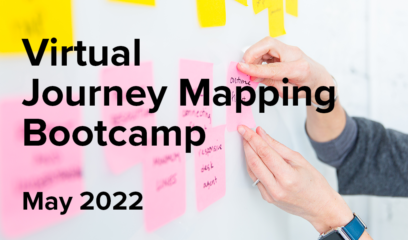When we moved back to San Francisco in 02009, my husband and I joined an organization called The Long Now Foundation. About once a month, we attend Long Now lectures to learn about topics like the world’s oldest living organisms; the coevolution of light, life, and color on earth; how to find dangerous asteroids; and the coming century of war against our computers.
As you might have guessed, the organization’s mission is to foster long-term thinking and responsibility. Just how long term are we talking? The Long Now Foundation uses five-digit dates in order to solve the Y10k bug that’s approaching in about 8,000 years. Yeah, we’re talking that long term.
Timescales of this magnitude are incredibly difficult for us to imagine. Our lifespans are puny in comparison. And the pace at which we live and work seems only to be accelerating. We plan for tomorrow based on what happened yesterday. We make decisions for next week based on last week’s results. We get paid—and, seemingly, live and die—based on the numbers we report at the end of the quarter.
The field of customer experience and, no doubt, your customer experience efforts have suffered because of the short-term thinking that is rampant in today’s corporations and financial systems. We’ve been trained to focus on the short-term benefits of cost cutting, strict product returns policies, and fast but kludgy technology fixes.
Case in point: Several years ago, the CEO of a major retailer slashed the number of in-store employees on payroll, and the immediate cost savings caused a slight uptick in stock price. But over time, the in-store experience degraded to the point that customers couldn’t find the items they wanted to buy, couldn’t get help solving their problems, and couldn’t stand shopping there. And then the stock price took a nosedive.
This outcome shouldn’t come as a big shock to any right-minded businessperson. Deep in our hearts, we all know that long-term, sustainable profits rely heavily on customer loyalty—and that customer loyalty must be developed and nurtured over time. Yet again and again, we’re lured to the immediate gratification of short-term thinking. And that’s because we’re rewarded for it. In today’s corporations, short-term thinking drives recognition, bonuses, promotions, and budgets. And with our minds and our calendars filled with short-term projects, we have little left to devote to the future. The long future.
As we embark on 02015, it’s a natural and perfect time to reflect on the past year and plan for the upcoming months. As you do this, I’d encourage you to look beyond your typical planning horizons. Look at where your company was a decade ago, track its path to current day, and work with your colleagues to create a vision for the next 10 or 20 years. What kind of company do you want to be? What kind of experience do you want to deliver to your customers? How do your employees interact with customers and each other?
Of course, this vision will be vague and hazy. And, inevitably, it will be wrong. There will be external market shifts, new technology, and consumer behavior changes that you simply can’t imagine today. Don’t worry—it’s a vision, not a project plan! The point is to get you to start flexing your long-term thinking muscles. Like any new skill or habit, it will take some practice before long-term thinking becomes easy or second nature.
If you need some additional inspiration, consider joining the Long Now Foundation. The Long Now makes its archive of lectures available to members at longnow.org, so you can get your dose of long-term thinking without even leaving the comfort of your couch. I promise, I don’t get a kickback for this endorsement. I’ve simply found that the Long Now’s ideas are great for breaking me out of my day-to-day, what-do-I-need-to-get-done-this-afternoon mindset and expanding my personal and professional time horizons. I hope you’ll join me!
***
This article originally appeared in the eBook The 2015 Customer Experience Outlook, a collection of ideas from customer experience authors, designers, and industry leaders. Download your FREE copy today!
Photo credit: Rolfe Horn




